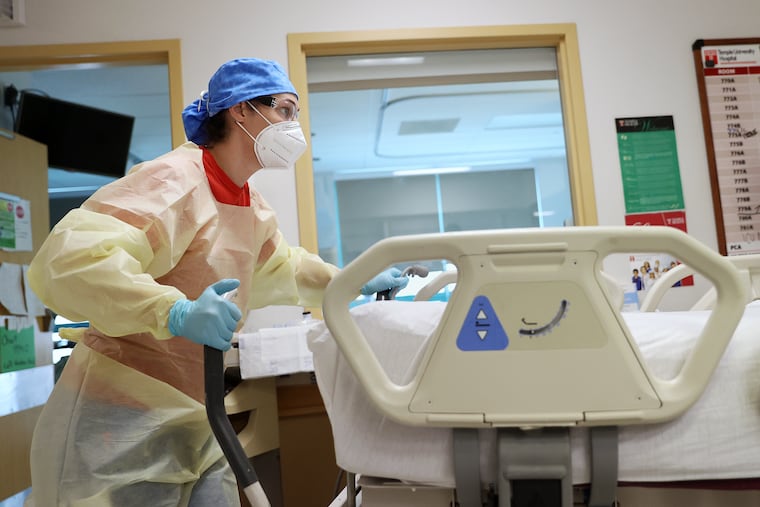Temple study helps predict which COVID-19 patients develop dangerous ‘cytokine storm’
Researchers identified a handful of blood-test results that predicted which COVID patients were likely to suffer severe inflammation.

Some of those who get really sick with COVID-19 develop dangerous, systemic inflammation, triggered by an overactive immune response called a cytokine storm. But predicting who will go down that path, and how to prevent it, remains a challenge.
A new Temple University study has identified a handful of chemical markers, easily measured with standard hospital blood tests, that may help.
The authors started by measuring the levels of 62 such markers in hundreds of hospitalized COVID-19 patients, including proteins and other substances related to metabolism, the immune system, and other bodily functions. Just a handful were unusually elevated or suppressed in patients who went on to experience a runaway “storm” of inflammation.
The researchers then measured this handful of criteria in a second set of patients to see if it would predict severe inflammatory disease for them, too. More than two-thirds of the time, it did.
In both groups, patients whose blood tests met these special criteria stayed in the hospital longer and were more likely to die, said lead author Roberto Caricchio, chief of the rheumatology section at Temple’s Katz School of Medicine.
“They are all sick people, but those that meet the criteria are, by far, sicker,” he said.
» READ MORE: Hospital coronavirus treatment has changed. Here’s what it looks like now in Philadelphia.
Though the severe inflammation of COVID-19 is thought to be triggered by immune-system chemicals called cytokines, measuring them requires sophisticated tests that are not commonly available in community hospitals. The predictive criteria identified by Caricchio and his colleagues, on the other hand, can be readily measured in a standard blood test, he said.
They include markers associated with electrolyte imbalance and tissue damage, among other warning signs. (One example is elevated levels of ferritin, a type of molecule that stores iron.)
“There is nothing really special about these tests,” Caricchio said. “Any hospital with a lab could actually apply them.”
Though not a perfect predictor of severe COVID-19 disease, the Temple criteria are likely to be useful, said Amesh Adalja, a senior scholar at the Johns Hopkins Center for Health Security, who was not involved with the study.
“Having a scoring system to help guide therapy is going to be important as we refine the care that we provide to people with COVID-19,” said Adalja, a physician and fellow of the Infectious Diseases Society of America. “I do think it’s a helpful tool.”
The study was published late last month in Annals of the Rheumatic Diseases. The next step is to identify which drugs may help prevent these harmful overreactions by the immune system. But as physicians have known for years before the COVID-19 pandemic, interfering with the immune system requires a balancing act.
Cytokines, the suspected culprit in these inflammatory storms, nevertheless play an essential role in fighting infectious disease. They are chemical alarm signals that awaken other components of the immune system.
In some COVID-19 patients whose immune systems are overreacting, it might make sense to block the activity of certain cytokines, Caricchio said. But in other cases, inhibiting these alarm signals could hamper the patient’s own immune response. Formal study is required to determine which patients are which.
One cytokine-blocking drug being studied in COVID-19 patients at Temple, among other sites, is called anakinra — a drug originally developed to treat rheumatoid arthritis.
If Caricchio and his colleagues are right, patients whose blood tests meet the new set of criteria may be the very people who stand to benefit most.